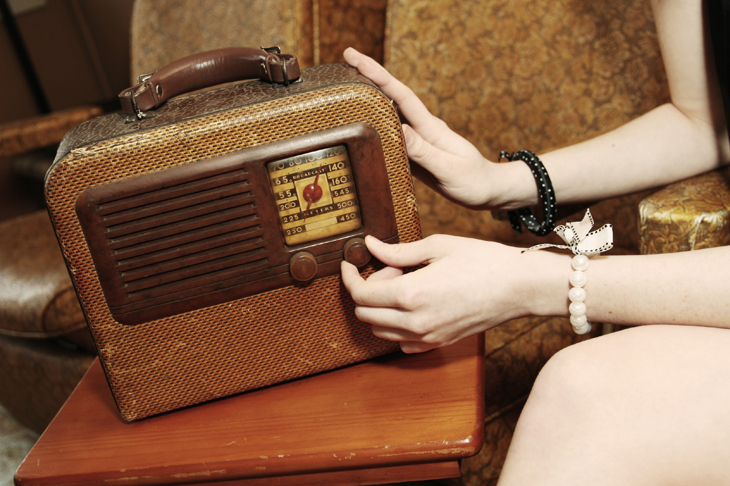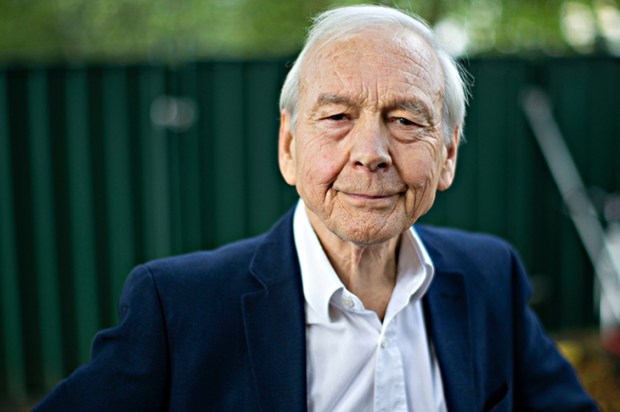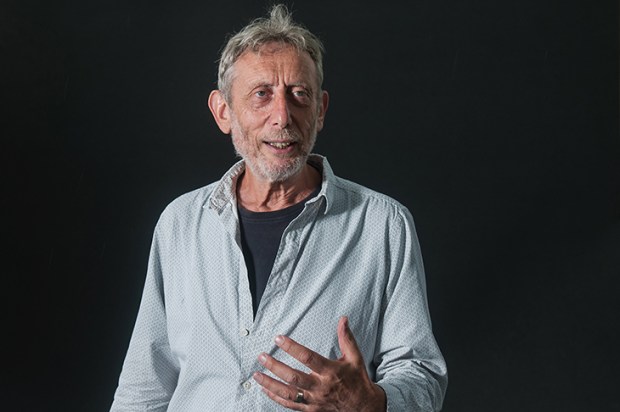To Herne Bay in Kent for the UK International Radio Drama Festival: 50 plays from 17 countries in 15 languages broadcast over five days to the festival audience. It’s an opportunity to find out what radio plays sound like in other countries, but also to experience a different kind of listening. About 25 of us were invited into a suite of rooms furnished with flock wallpaper, floral sofas and armchairs to take us back to the great age of radio listening in the 1950s. A kettle boils in the background; buttered scones on a tiered rack are sitting ready for us to pounce on at the next pause between plays.
Melanie Nock and Jonathan Banatvala launched the festival four years ago, surprised by the fact that the UK, the biggest consumer (and producer) of radio plays in the world, didn’t already have its own celebration of this very particular, and very of-the-moment art form. (Elsewhere in Europe there’s the Prix Marulic held on a sun-baked island off the coast of Croatia, the Grand Prix Nova in Romania, and the prestigious Prix Europa.) It’s not just that with radio drama you can listen for free without leaving home, so it’s very accessible and democratic; it can also be far more adventurous than theatre or film. There’s no need to obey the unities of time and space; we can go anywhere, any time in our imaginations without leaving the room. All that the writers and producers must do is ensure they take us with them, giving us freedom to roam but never letting us lose the thread.
Nock, from a theatre background, believes the community aspect of listening should be revived. And it does change the experience. It was weird to hear people around me laughing at the jokes in RTE’s Surviving Ireland drama-documentary as if there was a studio audience, only to realise the laughs were coming from inside the room not out of the radio set on the sideboard. It probably also makes you more open to the unusual, more willing to keep listening, to be taken out of your comfort zone. But the festival is also intended as an opportunity to bring to the UK plays from across the world. There are prizes for the best short-form and best long-form productions, given by a jury made up of listeners at the festival and chaired this year by Tomas Soldan from Czech Radio, plus an audience prize. On Wednesday we heard plays from Iran, Romania, Denmark and Germany, as well as from the BBC.
There’s a real difference in approach, with the plays from central Europe and beyond often more experimental, less intent on narrative, than we are used to. The Lady of Wednesday, for instance, in Persian (we were given scripts in English), about a young man searching to make his dreams come true through the agency of the lady of the well, was fabulous in content and in acting style, like listening to the telling of an ancient fairy tale, each laugh or sob magnified. In contrast, Explosiv from Romania was rooted in the now, set in a high school where a group of ghastly teenagers are surrounded by even more ghastly grown-ups. There could be no happy ending.
Plays can be as short as six minutes, which is not something we are used to in the UK, but they can be surprisingly effective. Anxiety, for example, from Denmark and based on a short story written in 1962, gave us in just nine minutes a chilling tale told by four men who meet each day on the same train to work. One morning a stranger is sitting in one of their seats… All the plays can still be heard via the festival’s website (www.radiodramafestival.org.uk) and if you’re very quick you could vote for the play you think should win the audience award as voting closes at midnight tomorrow.
There were two new plays on Radio 1Xtra this week as part of the BBC’s drive to reach out to younger audiences (how I wish they could have been broadcast on Radio 4 to broaden that station’s range). Quarter Life Crisis by Yolanda Mercy (and directed by Caroline Raphael) stars Mercy herself as a young black woman, approaching 26, who’s wondering whether she will ever find her way in life, feel grown-up, have the opportunity to break free. ‘Do you have to know where you’re going in life, or is it OK to make it up as you go along?’ asks Alicia. It’s fast, it’s funny, it moves around in time, making the most of the form. Mercy is apparently writing several plays for TV; I hope we don’t lose her voice from the radio.
With a Little Bit of Luck by Sabrina Mahfouz (a Paines Plough production) is like a musical for radio, celebrating the emergence of UK garage in the summer of 2001. Nadia has just been offered a place at university, but how can she fund the years of study and keep hold of her boyfriend who tells her that studying is just a waste of time? This is full of clever wordplay, great music, and an all-too-believable plot. It takes you right inside Nadia’s world.
Got something to add? Join the discussion and comment below.
Get 10 issues for just $10
Subscribe to The Spectator Australia today for the next 10 magazine issues, plus full online access, for just $10.
You might disagree with half of it, but you’ll enjoy reading all of it. Try your first month for free, then just $2 a week for the remainder of your first year.














Comments
Don't miss out
Join the conversation with other Spectator Australia readers. Subscribe to leave a comment.
SUBSCRIBEAlready a subscriber? Log in